Getting started is always the hardest part. These self-paced courses will guide you through your first steps with our tools, devices, and their associated technologies, helping you to climb the learning curve as fast as possible. Whether you are brand new to Microchip or are looking to tackle an unfamiliar technology, we are here to help.


All Courses

Virtual internship - Embedded Systems
Virtual internship - Embedded Systems
13 Courses

Virtual Internship - Advanced Embedded System
Virtual Internship - Advanced Embedded System
19 Courses

Virtual internship - Connectivity
Ethernet System Integration
1 Course

Getting Started with Libero Soc and PolarFire FPGAs
This tutorial demonstrates how to implement basic PolarFire™ FPGA designs using the Libero® SoC design tool. The design used in this tutorial runs on an MPF300T_ES connected to a PolarFire Splash Kit. This tutorial is set up as six separate lessons. Each lesson adds complexity and builds upon the previous lesson. After completing this tutorial, you will be able to Create a Libero SoC PolarFire project Compiling a design
TA_Experts
TN_Programmable Logic
TT_Tools
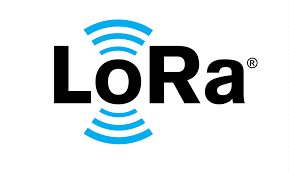
LoRa® Basics
LoRa® radio technology and the LoRaWAN™ network protocol were created to transmit small packets of data over very long distances. This course provides an introduction to basic network structure/function and key device parameters.
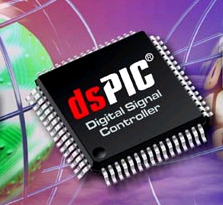
DSP Features of the Microchip dsPIC® DSC
⭐(4,6)
TA_ESE or FAE
TN_Microcontroller System

Complimentary Waveform Generator on 8-bit
⭐(4,4)
TA_ESE or FAE
TN_Microcontroller System

PIC32MX Core Architecture

Introduction to Operational Amplifiers
This training explains the operational amplifier (op-amp) concepts and terminology
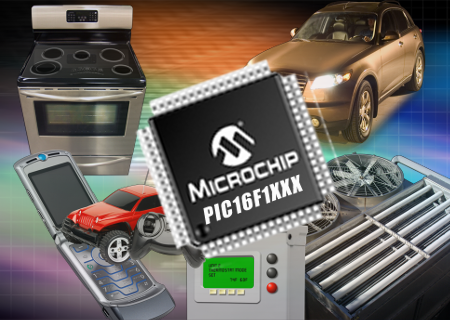
Introduction to the PIC16F1 Enhanced MCU Architecture
This class introduces the Microchip PIC®16F1xxx Enhanced 8-bit MCU.
TA_ESE or FAE
TN_Microcontroller System

Fundamentals of the C Programming Language (Part II)
TA_ESE or FAE
TN_Embedded Software
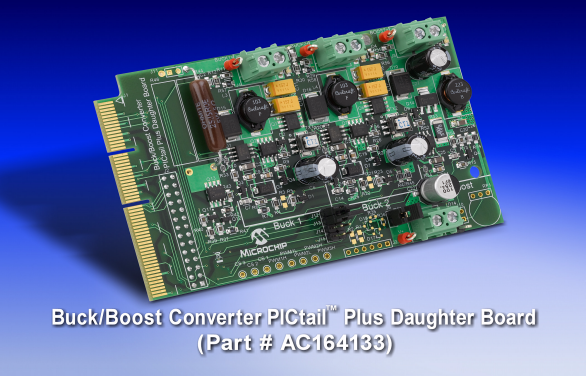
Digital Control Techniques for Power Converters using dsPIC DSC
This self-paced module investigates some standard control techniques used in power converter designs.
TN_Power Conversion

Fundamentals of the C Programming Language (Part III)
TA_ESE or FAE
TN_Embedded Software

Programming Microchip PIC16F using MCC (Volume 1)
This training introduces how to use the MPLAB Code Configurator with a PIC16F1Fxxx device.
TA_Experts
TN_Embedded Software
TT_Tools

MPLAB X IDE: Getting Started and Programming an MCU Application
Learn fundamentals of the MPLAB X IDE and learn how to program an MCU development board with an example application.
TA_Experts
TN_Microcontroller System
TN_Embedded Software
TT_Tools

Digital Power Converter Basics using dsPIC33 Digital Signal Controllers
This self-paced, online class offers the background information that analog designers need when approaching a new power converter digital design.
TN_Power Conversion
TN_Sensor Systems

MPLAB X IDE: Debugging with Advanced Breakpoints
This class introduces some of the advanced breakpoint features within the MPLAB X IDE.
9 minutes
TA_Experts
TN_Embedded Software
TT_Tools

Programming an 8-bit PIC® MCU Timer1 Interrupt Using Function Pointers and MCC
This course shows how to program an 8-bit PIC® MCU Timer1 using Function Pointers, MPLAB® X IDE, and MCC
TN_Microcontroller System
TN_Embedded Software
TT_Tools

Fundamentals of the C Programming Language (Part I)
Not currently available
TA_ESE or FAE
TN_Embedded Software

Programming an 8-bit PIC MCU Digital Input and Output using MCC
This course shows how to program an 8-bit PIC MCU digital input and output using MPLAB X & MCC
TN_Microcontroller System
TN_Embedded Software
TT_Tools

Introduction to the Numerically Controlled Oscillator
⭐(4,6)
TN_Clock and Timing

MPLAB® Mindi™ Analog Simulator Hands On Workbook
The MPLAB® Mindi™ Analog Simulator is a free, stand-alone simulator software that reduces circuit design time and design risk. It simulates analog circuits prior to hardware prototyping.
⭐(4,5)
TA_Experts
TN_Analog
TN_Embedded Software
TT_Tools

Programming an 8-bit PIC MCU Pulse Width Modulation (PWM) Output Using MCC
This course shows how to program an 8-bit PIC MCU pulse width modulation output using MPLAB X & MCC
TN_Microcontroller System
TN_Embedded Software
TT_Tools

Introduction to the 8-bit PIC MCU Timer0
⭐(4,5)
TA_ESE or FAE
TN_Microcontroller System

PIC32MZ Core Architecture
⭐(4,7)

10BASE-T1S Single Pair Ethernet System Integration
This class will introduce the 802.3cg short reach 10Mbps Ethernet physical layer standard and the PLCA collision management protocol which allows for efficient multi-drop network implementations. (Nov 2022)
54 min

Configurable Logic Cell Introduction
This training introduces the Configurable Logic Cell (CLC) for Microchip 8-bit MCU devices and shows how to use it.
⭐(4,5)

Developing Bootloaders for ARM® Cortex® M0+ MCUs
This class will review the basics of firmware bootloaders and show you how to deploy a bootloader-enabled application on a SAM D21 MCU, using the MPLAB® X IDE and the MPLAB Harmony bootloader library. (October 2023)
86 min
TN_Microcontroller System

Rapid Prototyping with the Curiosity Nano Platform
This course will help you to get the most out of the Curiosity Nano development platform. (Nov 2021)
57 min

Visual Debugging with MPLAB® Data Visualizer
In this class, we’ll use MPLAB® Data Visualizer as a plugin to MPLAB X IDE to plot real-time data from PIC®, AVR® and SAM MCUs using the Curiosity Nano Platform, and Xplained Pro platforms. (Feb 2021)
41 min
TN_Embedded Software
TT_Tools

CAN and CAN FD Protocol and Physical Layer Basics
The course will teach you the CAN and CAN FD protocol and physical layer basics. (Dec 2020)
69 min
TN_WN Wired Networking
TT_MU
TN_WN CAN

Designing and Implementing a CAN FD Network
This course will teach you the CAN FD protocol and physical layer by guiding you through a CAN FD network design and implementation based on an example application. (Jan 2022)
157 min
TN_WN Wired Networking
TN_WN CAN

Introduction to Functional Safety
This class covers the fundamentals of Functional Safety including terminology, standards, FMEDA, requirements and tools offered by Microchip. (June 2022)
101 min
TN_Functional Safety

Battery Charging Fundamentals
Battery Chemistries, Terminology, Profiles and Charging Topologies for Real-World Products
118 min
TT_MU

Battery Charging Applications: Introduction to Battery Pack Design
Learn how to specify and design a rechargeable battery pack made from multiple cells in various arrangements. (June 2021)
53 min
TT_MU

Charging Batteries from Solar
This class will help you understand how to deal with the dynamic impedance of solar cells, apply power-point tracking algorithms, sizing your battery and solar array, and negotiating between tracking efficiency vs. the charge waveform required by your battery chemistry. (Jan 2022)
107 min
TT_MU
EM_Sustainability

8-bit PIC® MCU Peripheral Deep Dive
This class presents deep-dive information on the architecture, setup, demonstration and pitfalls of the most common PIC16 and PIC18 peripherals. New chapters will be added as they become available. (Updated Jan 2025))
322 min
TN_Microcontroller System
TT_MU

MCC Melody API Reference for PIC® MCUs
MCC Melody components are the collective name for the provided libraries, drivers, Peripheral Libraries (PLIBs) and Hardware Initializers (HWIs). For select components, the MCC Melody API references now include a “How to use the …” sections, which are a series of use cases. (Jan 2023)
67 min
TN_Microcontroller System
TT_Tools

AVR Peripheral Deep Dive
This class presents deep-dive information on the architecture, setup, demonstration and pitfalls of the most common AVR peripherals. More chapters will be added as they become available. (Updated June 2023)
64 min
TT_MU

MCC Melody API Reference for AVR® MCUs
MCC Melody components are the collective name for the provided libraries, drivers, Peripheral Libraries (PLIBs) and Hardware Initializers (HWIs). For select components, the MCC Melody API references now include a “How to use the …” sections, which are a series of use cases. (Jan 2023)
96 min
TN_Microcontroller System
TT_Tools

ARM® Cortex®-M Architecture Overview
This course covers the architectural differences of the Cortex-M cores and will help you select which device is the best choice for your own application. (Sept 2022)
142 min
TT_MU

Getting Started with Writing Code for the Microchip ARM® Cortex® Microcontrollers
Learn how to get started writing code and operating peripherals on the Microchip SAM ARM Cortex M0+, M23 and M4 microcontrollers. (Sept 2021)
184 min
TN_Microcontroller System
TN_Embedded Software

SAM and PIC32 Peripheral Deep Dive
This class presents extensive information on the architecture and configuration of the SAM and PIC32 Peripherals. (Updated September 2024)
278 min

MPLAB® Harmony v3 Fundamentals
MPLAB® Harmony v3 Fundamentals (Dec 2020)
49 min
TN_Embedded Software
TT_Tools

Simple Applications Using the MPLAB® Harmony v3 Peripheral Libraries
Creating Simple Embedded Applications with 32-bit MCUs/MPUs using the MPLAB® Harmony v3 Peripheral Libraries. (May 2021)
95 min
TN_Embedded Software
TT_Tools

Creating Advanced Embedded Applications with 32-bit MCUs/MPUs using the MPLAB® Harmony v3 Software Framework
This class shows how the MPLAB® Harmony drivers, system services and middleware enables you to rapidly develop bare-metal and RTOS applications. (April 2021)
107 min
TN_Microcontroller System
TN_Microprocessors
2021
TT_MU
TN_Embedded Software
LV_5
TT_Tools

Course 12: Motor Control Workshop using dsPIC® Digital Signal Controllers (DSC) Dual Core Devices
This workshop class is for those aiming for a clear understanding of 3-phase brushless permanent magnet motors and their control at the fundamental level. (May 2022)
71 min
TN_Motor Control

Course 4: Syntax And Structure of C - Simply C
Fundamentals of the C Programming Language
133 min

Visual Debugging with MPLAB® Data Visualizer
In this class, we’ll use MPLAB® Data Visualizer as a plugin to MPLAB X IDE to plot real-time data from PIC®, AVR® and SAM MCUs using the Curiosity Nano Platform, and Xplained Pro platforms. (Feb 2021)
Not currently available
41 min
2021
TN_Embedded Software
LV_1
TT_Tools

Course 6: C Programming: Linked List Data Structures
Learn how to use Linked List Data Structures to make your data access easier and more flexible
59 min
TT_MU
TN_Embedded Software

Course 1: 8 Bit Microcontrollers: Architecture of the PIC16
This class covers the basic architecture, memory map, instruction set, interrupt structure and special features of the PIC16F1x family of devices. (Feb 2022)
69 min
TN_Microcontroller System
TT_MU

Course 11: Creating a Sensor Node for Azure IoT Central
This class will help you create a proof-of-concept IoT sensor node which connects to the Microsoft Azure Cloud. (Nov 2022)
47 min
TN_Sensor Systems
EM_IoT/Edge Computing
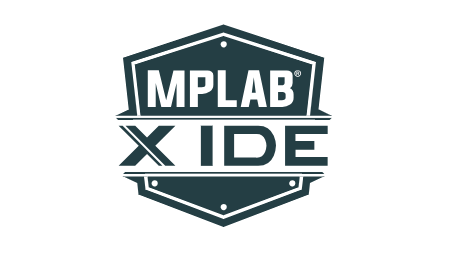
Course 2: Introduction to the MPLAB® X Integrated Development Environment (IDE)
This course introduces the MPLAB X Development Environment for creating applications using Microchip Microcontrollers.
TN_Embedded Software
TT_Tools

Course 5: Advanced C Programming
This course covers many advanced concepts of the C programming language for embedded applications. (June 2021)
206 min
TT_MU
TN_Embedded Software

Course 8: Advanced Embedded C Tips, Tricks, and Cautions
This class will help you take your C programming skills to the next level with concepts like header file inclusion, using typedefs for function pointers and structures, performing floating point math without hardware floating point units or firmware libraries, and initializing and clearing structures and unions. (June 2022)
59 min
TT_MU

Course 10: Exploring Bluetooth® Low Energy (BLE) From First Steps To Final Application
This class is for engineers who want to learn BLE with little to no previous experience.
70 min

Course 3: Getting Started with PIC16F1xxx MCUs using MCC and State Machines
When you complete this class you will be able to create a PIC16F1xxx application from scratch using State Machines, MPLAB® X and MPLAB Code Configurator (MCC). You will be able to configure GPIO, Timer, USART and ADC using MCC. (Nov 2021)
103 min
TN_Microcontroller System
TT_Tools

Course 9: Design Considerations For Your First IoT Project
Learn the essentials of a connected device within the context of IoT. We explore WiFi, Ethernet, TCP/IP networking and analysis, messaging, provisioning, cloud models and the basics of IoT security. (Jan 2021)
108 min
EM_IoT/Edge Computing

Course 7: C Programming Callbacks
This class covers Callbacks in C which allow you to create more flexible and modular functions and enable you to separate hardware and software operations. (Jan 2023)
140 min
TA_Experts
TT_MU
TN_Embedded Software

Developing Bootloaders for ARM® Cortex® M0+ MCUs
This class will review the basics of firmware bootloaders and show you how to deploy a bootloader-enabled application on a SAM D21 MCU, using the MPLAB® X IDE and the MPLAB Harmony bootloader library. (October 2023)
86 min
TN_Microcontroller System

Rapid Prototyping with the Curiosity Nano Platform
This course will help you to get the most out of the Curiosity Nano development platform. (Nov 2021)
57 min

Visual Debugging with MPLAB® Data Visualizer
In this class, we’ll use MPLAB® Data Visualizer as a plugin to MPLAB X IDE to plot real-time data from PIC®, AVR® and SAM MCUs using the Curiosity Nano Platform, and Xplained Pro platforms. (Feb 2021)
41 min
TN_Embedded Software
TT_Tools

CAN and CAN FD Protocol and Physical Layer Basics
The course will teach you the CAN and CAN FD protocol and physical layer basics. (Dec 2020)
69 min
TN_WN Wired Networking
TT_MU
TN_WN CAN

Designing and Implementing a CAN FD Network
This course will teach you the CAN FD protocol and physical layer by guiding you through a CAN FD network design and implementation based on an example application. (Jan 2022)
157 min
TN_WN Wired Networking
TN_WN CAN

Introduction to Functional Safety
This class covers the fundamentals of Functional Safety including terminology, standards, FMEDA, requirements and tools offered by Microchip. (June 2022)
101 min
TN_Functional Safety

Battery Charging Fundamentals
Battery Chemistries, Terminology, Profiles and Charging Topologies for Real-World Products
118 min
TT_MU

Battery Charging Applications: Introduction to Battery Pack Design
Learn how to specify and design a rechargeable battery pack made from multiple cells in various arrangements. (June 2021)
53 min
TT_MU

Charging Batteries from Solar
This class will help you understand how to deal with the dynamic impedance of solar cells, apply power-point tracking algorithms, sizing your battery and solar array, and negotiating between tracking efficiency vs. the charge waveform required by your battery chemistry. (Jan 2022)
107 min
TT_MU
EM_Sustainability

8-bit PIC® MCU Peripheral Deep Dive
This class presents deep-dive information on the architecture, setup, demonstration and pitfalls of the most common PIC16 and PIC18 peripherals. New chapters will be added as they become available. (Updated Jan 2025))
322 min
TN_Microcontroller System
TT_MU

MCC Melody API Reference for PIC® MCUs
MCC Melody components are the collective name for the provided libraries, drivers, Peripheral Libraries (PLIBs) and Hardware Initializers (HWIs). For select components, the MCC Melody API references now include a “How to use the …” sections, which are a series of use cases. (Jan 2023)
67 min
TN_Microcontroller System
TT_Tools

AVR Peripheral Deep Dive
This class presents deep-dive information on the architecture, setup, demonstration and pitfalls of the most common AVR peripherals. More chapters will be added as they become available. (Updated June 2023)
64 min
TT_MU

MCC Melody API Reference for AVR® MCUs
MCC Melody components are the collective name for the provided libraries, drivers, Peripheral Libraries (PLIBs) and Hardware Initializers (HWIs). For select components, the MCC Melody API references now include a “How to use the …” sections, which are a series of use cases. (Jan 2023)
96 min
TN_Microcontroller System
TT_Tools

ARM® Cortex®-M Architecture Overview
This course covers the architectural differences of the Cortex-M cores and will help you select which device is the best choice for your own application. (Sept 2022)
142 min
TT_MU

Getting Started with Writing Code for the Microchip ARM® Cortex® Microcontrollers
Learn how to get started writing code and operating peripherals on the Microchip SAM ARM Cortex M0+, M23 and M4 microcontrollers. (Sept 2021)
184 min
TN_Microcontroller System
TN_Embedded Software

SAM and PIC32 Peripheral Deep Dive
This class presents extensive information on the architecture and configuration of the SAM and PIC32 Peripherals. (Updated September 2024)
278 min

MPLAB® Harmony v3 Fundamentals
MPLAB® Harmony v3 Fundamentals (Dec 2020)
49 min
TN_Embedded Software
TT_Tools

Simple Applications Using the MPLAB® Harmony v3 Peripheral Libraries
Creating Simple Embedded Applications with 32-bit MCUs/MPUs using the MPLAB® Harmony v3 Peripheral Libraries. (May 2021)
95 min
TN_Embedded Software
TT_Tools

Creating Advanced Embedded Applications with 32-bit MCUs/MPUs using the MPLAB® Harmony v3 Software Framework
This class shows how the MPLAB® Harmony drivers, system services and middleware enables you to rapidly develop bare-metal and RTOS applications. (April 2021)
107 min
TN_Microcontroller System
TN_Microprocessors
2021
TT_MU
TN_Embedded Software
LV_5
TT_Tools

Course 12: Motor Control Workshop using dsPIC® Digital Signal Controllers (DSC) Dual Core Devices
This workshop class is for those aiming for a clear understanding of 3-phase brushless permanent magnet motors and their control at the fundamental level. (May 2022)
71 min
TN_Motor Control

Course 4: Syntax And Structure of C - Simply C
Fundamentals of the C Programming Language
133 min

Visual Debugging with MPLAB® Data Visualizer
In this class, we’ll use MPLAB® Data Visualizer as a plugin to MPLAB X IDE to plot real-time data from PIC®, AVR® and SAM MCUs using the Curiosity Nano Platform, and Xplained Pro platforms. (Feb 2021)
Not currently available
41 min
2021
TN_Embedded Software
LV_1
TT_Tools

Course 6: C Programming: Linked List Data Structures
Learn how to use Linked List Data Structures to make your data access easier and more flexible
59 min
TT_MU
TN_Embedded Software

Course 1: 8 Bit Microcontrollers: Architecture of the PIC16
This class covers the basic architecture, memory map, instruction set, interrupt structure and special features of the PIC16F1x family of devices. (Feb 2022)
69 min
TN_Microcontroller System
TT_MU

Course 11: Creating a Sensor Node for Azure IoT Central
This class will help you create a proof-of-concept IoT sensor node which connects to the Microsoft Azure Cloud. (Nov 2022)
47 min
TN_Sensor Systems
EM_IoT/Edge Computing

Course 2: Introduction to the MPLAB® X Integrated Development Environment (IDE)
This course introduces the MPLAB X Development Environment for creating applications using Microchip Microcontrollers.
TN_Embedded Software
TT_Tools

Course 5: Advanced C Programming
This course covers many advanced concepts of the C programming language for embedded applications. (June 2021)
206 min
TT_MU
TN_Embedded Software

Course 8: Advanced Embedded C Tips, Tricks, and Cautions
This class will help you take your C programming skills to the next level with concepts like header file inclusion, using typedefs for function pointers and structures, performing floating point math without hardware floating point units or firmware libraries, and initializing and clearing structures and unions. (June 2022)
59 min
TT_MU

Course 10: Exploring Bluetooth® Low Energy (BLE) From First Steps To Final Application
This class is for engineers who want to learn BLE with little to no previous experience.
70 min

Course 3: Getting Started with PIC16F1xxx MCUs using MCC and State Machines
When you complete this class you will be able to create a PIC16F1xxx application from scratch using State Machines, MPLAB® X and MPLAB Code Configurator (MCC). You will be able to configure GPIO, Timer, USART and ADC using MCC. (Nov 2021)
103 min
TN_Microcontroller System
TT_Tools

Course 9: Design Considerations For Your First IoT Project
Learn the essentials of a connected device within the context of IoT. We explore WiFi, Ethernet, TCP/IP networking and analysis, messaging, provisioning, cloud models and the basics of IoT security. (Jan 2021)
108 min
EM_IoT/Edge Computing

Course 7: C Programming Callbacks
This class covers Callbacks in C which allow you to create more flexible and modular functions and enable you to separate hardware and software operations. (Jan 2023)
140 min
TA_Experts
TT_MU
TN_Embedded Software

10BASE-T1S Single Pair Ethernet System Integration
This class will introduce the 802.3cg short reach 10Mbps Ethernet physical layer standard and the PLCA collision management protocol which allows for efficient multi-drop network implementations. (Nov 2022)
54 min

Developing Bootloaders for ARM® Cortex® M0+ MCUs
This class will review the basics of firmware bootloaders and show you how to deploy a bootloader-enabled application on a SAM D21 MCU, using the MPLAB® X IDE and the MPLAB Harmony bootloader library. (October 2023)
86 min
TN_Microcontroller System

Rapid Prototyping with the Curiosity Nano Platform
This course will help you to get the most out of the Curiosity Nano development platform. (Nov 2021)
57 min

Visual Debugging with MPLAB® Data Visualizer
In this class, we’ll use MPLAB® Data Visualizer as a plugin to MPLAB X IDE to plot real-time data from PIC®, AVR® and SAM MCUs using the Curiosity Nano Platform, and Xplained Pro platforms. (Feb 2021)
41 min
TN_Embedded Software
TT_Tools

CAN and CAN FD Protocol and Physical Layer Basics
The course will teach you the CAN and CAN FD protocol and physical layer basics. (Dec 2020)
69 min
TN_WN Wired Networking
TT_MU
TN_WN CAN

Designing and Implementing a CAN FD Network
This course will teach you the CAN FD protocol and physical layer by guiding you through a CAN FD network design and implementation based on an example application. (Jan 2022)
157 min
TN_WN Wired Networking
TN_WN CAN

Introduction to Functional Safety
This class covers the fundamentals of Functional Safety including terminology, standards, FMEDA, requirements and tools offered by Microchip. (June 2022)
101 min
TN_Functional Safety

Battery Charging Fundamentals
Battery Chemistries, Terminology, Profiles and Charging Topologies for Real-World Products
118 min
TT_MU

Battery Charging Applications: Introduction to Battery Pack Design
Learn how to specify and design a rechargeable battery pack made from multiple cells in various arrangements. (June 2021)
53 min
TT_MU

Charging Batteries from Solar
This class will help you understand how to deal with the dynamic impedance of solar cells, apply power-point tracking algorithms, sizing your battery and solar array, and negotiating between tracking efficiency vs. the charge waveform required by your battery chemistry. (Jan 2022)
107 min
TT_MU
EM_Sustainability

8-bit PIC® MCU Peripheral Deep Dive
This class presents deep-dive information on the architecture, setup, demonstration and pitfalls of the most common PIC16 and PIC18 peripherals. New chapters will be added as they become available. (Updated Jan 2025))
322 min
TN_Microcontroller System
TT_MU

MCC Melody API Reference for PIC® MCUs
MCC Melody components are the collective name for the provided libraries, drivers, Peripheral Libraries (PLIBs) and Hardware Initializers (HWIs). For select components, the MCC Melody API references now include a “How to use the …” sections, which are a series of use cases. (Jan 2023)
67 min
TN_Microcontroller System
TT_Tools

AVR Peripheral Deep Dive
This class presents deep-dive information on the architecture, setup, demonstration and pitfalls of the most common AVR peripherals. More chapters will be added as they become available. (Updated June 2023)
64 min
TT_MU

MCC Melody API Reference for AVR® MCUs
MCC Melody components are the collective name for the provided libraries, drivers, Peripheral Libraries (PLIBs) and Hardware Initializers (HWIs). For select components, the MCC Melody API references now include a “How to use the …” sections, which are a series of use cases. (Jan 2023)
96 min
TN_Microcontroller System
TT_Tools

ARM® Cortex®-M Architecture Overview
This course covers the architectural differences of the Cortex-M cores and will help you select which device is the best choice for your own application. (Sept 2022)
142 min
TT_MU

Getting Started with Writing Code for the Microchip ARM® Cortex® Microcontrollers
Learn how to get started writing code and operating peripherals on the Microchip SAM ARM Cortex M0+, M23 and M4 microcontrollers. (Sept 2021)
184 min
TN_Microcontroller System
TN_Embedded Software

SAM and PIC32 Peripheral Deep Dive
This class presents extensive information on the architecture and configuration of the SAM and PIC32 Peripherals. (Updated September 2024)
278 min

MPLAB® Harmony v3 Fundamentals
MPLAB® Harmony v3 Fundamentals (Dec 2020)
49 min
TN_Embedded Software
TT_Tools

Simple Applications Using the MPLAB® Harmony v3 Peripheral Libraries
Creating Simple Embedded Applications with 32-bit MCUs/MPUs using the MPLAB® Harmony v3 Peripheral Libraries. (May 2021)
95 min
TN_Embedded Software
TT_Tools

Creating Advanced Embedded Applications with 32-bit MCUs/MPUs using the MPLAB® Harmony v3 Software Framework
This class shows how the MPLAB® Harmony drivers, system services and middleware enables you to rapidly develop bare-metal and RTOS applications. (April 2021)
107 min
TN_Microcontroller System
TN_Microprocessors
2021
TT_MU
TN_Embedded Software
LV_5
TT_Tools

Course 12: Motor Control Workshop using dsPIC® Digital Signal Controllers (DSC) Dual Core Devices
This workshop class is for those aiming for a clear understanding of 3-phase brushless permanent magnet motors and their control at the fundamental level. (May 2022)
71 min
TN_Motor Control

Course 4: Syntax And Structure of C - Simply C
Fundamentals of the C Programming Language
133 min

Visual Debugging with MPLAB® Data Visualizer
In this class, we’ll use MPLAB® Data Visualizer as a plugin to MPLAB X IDE to plot real-time data from PIC®, AVR® and SAM MCUs using the Curiosity Nano Platform, and Xplained Pro platforms. (Feb 2021)
Not currently available
41 min
2021
TN_Embedded Software
LV_1
TT_Tools

Course 6: C Programming: Linked List Data Structures
Learn how to use Linked List Data Structures to make your data access easier and more flexible
59 min
TT_MU
TN_Embedded Software

Course 1: 8 Bit Microcontrollers: Architecture of the PIC16
This class covers the basic architecture, memory map, instruction set, interrupt structure and special features of the PIC16F1x family of devices. (Feb 2022)
69 min
TN_Microcontroller System
TT_MU

Course 11: Creating a Sensor Node for Azure IoT Central
This class will help you create a proof-of-concept IoT sensor node which connects to the Microsoft Azure Cloud. (Nov 2022)
47 min
TN_Sensor Systems
EM_IoT/Edge Computing

Course 2: Introduction to the MPLAB® X Integrated Development Environment (IDE)
This course introduces the MPLAB X Development Environment for creating applications using Microchip Microcontrollers.
TN_Embedded Software
TT_Tools

Course 5: Advanced C Programming
This course covers many advanced concepts of the C programming language for embedded applications. (June 2021)
206 min
TT_MU
TN_Embedded Software

Course 8: Advanced Embedded C Tips, Tricks, and Cautions
This class will help you take your C programming skills to the next level with concepts like header file inclusion, using typedefs for function pointers and structures, performing floating point math without hardware floating point units or firmware libraries, and initializing and clearing structures and unions. (June 2022)
59 min
TT_MU

Course 10: Exploring Bluetooth® Low Energy (BLE) From First Steps To Final Application
This class is for engineers who want to learn BLE with little to no previous experience.
70 min

Course 3: Getting Started with PIC16F1xxx MCUs using MCC and State Machines
When you complete this class you will be able to create a PIC16F1xxx application from scratch using State Machines, MPLAB® X and MPLAB Code Configurator (MCC). You will be able to configure GPIO, Timer, USART and ADC using MCC. (Nov 2021)
103 min
TN_Microcontroller System
TT_Tools

Course 9: Design Considerations For Your First IoT Project
Learn the essentials of a connected device within the context of IoT. We explore WiFi, Ethernet, TCP/IP networking and analysis, messaging, provisioning, cloud models and the basics of IoT security. (Jan 2021)
108 min
EM_IoT/Edge Computing

Course 7: C Programming Callbacks
This class covers Callbacks in C which allow you to create more flexible and modular functions and enable you to separate hardware and software operations. (Jan 2023)
140 min
TA_Experts
TT_MU
TN_Embedded Software
